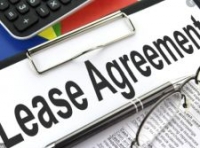What your commercial lease does, or does not, include can make a big difference to the prospects of your business, and you should be looking to negotiate a lease that will work for you, not against you.
Generally, disputes over commercial leases between tenants and landlords centre on certain points of contention. These are:
- Rent reviews
- Repairs, and who should carry them out
- The term length of the lease
- Assigning or underletting
- Breaking the terms of the lease.
Therefore, these are issues you should ensure you understand and that your commercial lease addresses, before you sign on the dotted line.
Rent Reviews
The longer the term of your lease, the increasing likelihood that you will have a rent review. Typically, these take place every three to five years and rent reviews should happen so that landlords can adjust rents to meet market conditions. However, market levels can also remain static.
The most common rent reviews are upwards, which means that your rent will not usually decrease following one. However, you should check your agreement to see whether it is possible to negotiate the frequency of rent reviews and the increases involved. A solicitor will be able to advise you whether this is included in your lease, before signing it.
Repairs
Repairs can be contentious, because exactly what defines a repair will be in your lease.
Most commercial leases are fully repairing and insuring (FRI) leases, which means that, as a tenant, you must pay for repairs and insurance of the premises. Repair clauses can become the focus of litigation, so its important to check what your degree of responsibility will be from the start.
The length of your lease
You should ensure your business and commercial objectives align with the length of your lease.
If you have short-term objectives, then a lease that ties you in for too long may be a drag on your plans, if for example you have plans to downsize or relocate. On the other hand, if you are
looking for a long-term, stable business base, then a shorter term of lease could be disruptive.
There are very likely to be restrictions on your ability to break, assign or underlet the lease, so you should be planning ahead.
However, if you're a small business or start-up with an unpredictable future, can you afford to commit to a lease of five to 10 years? Again, this is why negotiation with a landlord before you sign can be crucial.
Assigning or underletting your lease
Assigning is where a tenant transfers or sells on their lease to someone else. Underletting is where you create your own tenancy by leasing out the space you are renting to someone else.
Both of these might appear like attractive options in certain situations, but many leases prohibit these things happening.
Even if you are able to assign the lease, you will usually find that you are still responsible for the new tenant's ability to comply with the terms of the lease. In which case, assignment could prove more of a problem than a solution.
It is best to check and not to assume that a degree of flexibility exists with your lease as you may also find that the lease restricts your right to underlet.
Breaking the Lease
Does the lease contain a break clause? This is a clause that enables you, or your landlord, to end the lease early. If this exists, it may only come into effect after a minimum period of time.
You cannot just assume you have a right to break the lease and terminate it when it suits you, without consequences. Break clauses are common, but not a given condition.
Also, if a landlord shares the same rights as you in a break clause, this might make your tenancy less secure, creating uncertainty for your business. A break clause in your commercial lease can therefore be a double-edged sword. This goes back to considering your business objectives before you sign your lease.
Other things to look out for when leasing
Make sure you understand all the conditions of payment in your commercial lease, including:
- The frequency you must pay your rent
- When you can pay it, including deadlines
- Penalties for late payment
- What, if any, rent guarantees the landlord is asking for.
Before signing a commercial lease, also consider what factors will affect the rent of a property.
These include:
- Its location
- Its condition and size
- The general condition of the market
- Any lease restrictions.
Some landlords might offer rent-free periods, to compensate you for additional works that are taking place, for example, or even as an incentive. You can always check with your legal representative about this, or whether it is something you wish to negotiate with the landlord.
Be aware of additional charges, such as service charges. These are the fees the landlord charges to maintain the property, and can include:
- Cleaning, maintenance and repairs
- Management charges.
Where there is a service charge, check this in terms of your obligations for repairs and insurance.
Know Your Rights as a Commercial Tenant
As a commercial tenant, you have certain rights under the Landlord and Tenant Act 1954 which includes security of tenure for business and professional tenants. You should check that the Act applies to you, and if it does, what protection it gives you as a commercial tenant in regard to your lease.
For more details about Wilson Browne's services for commercial leaseholds, please call 0808 278 0018, or complete our online contact form, and we will be in touch as soon as possible.







